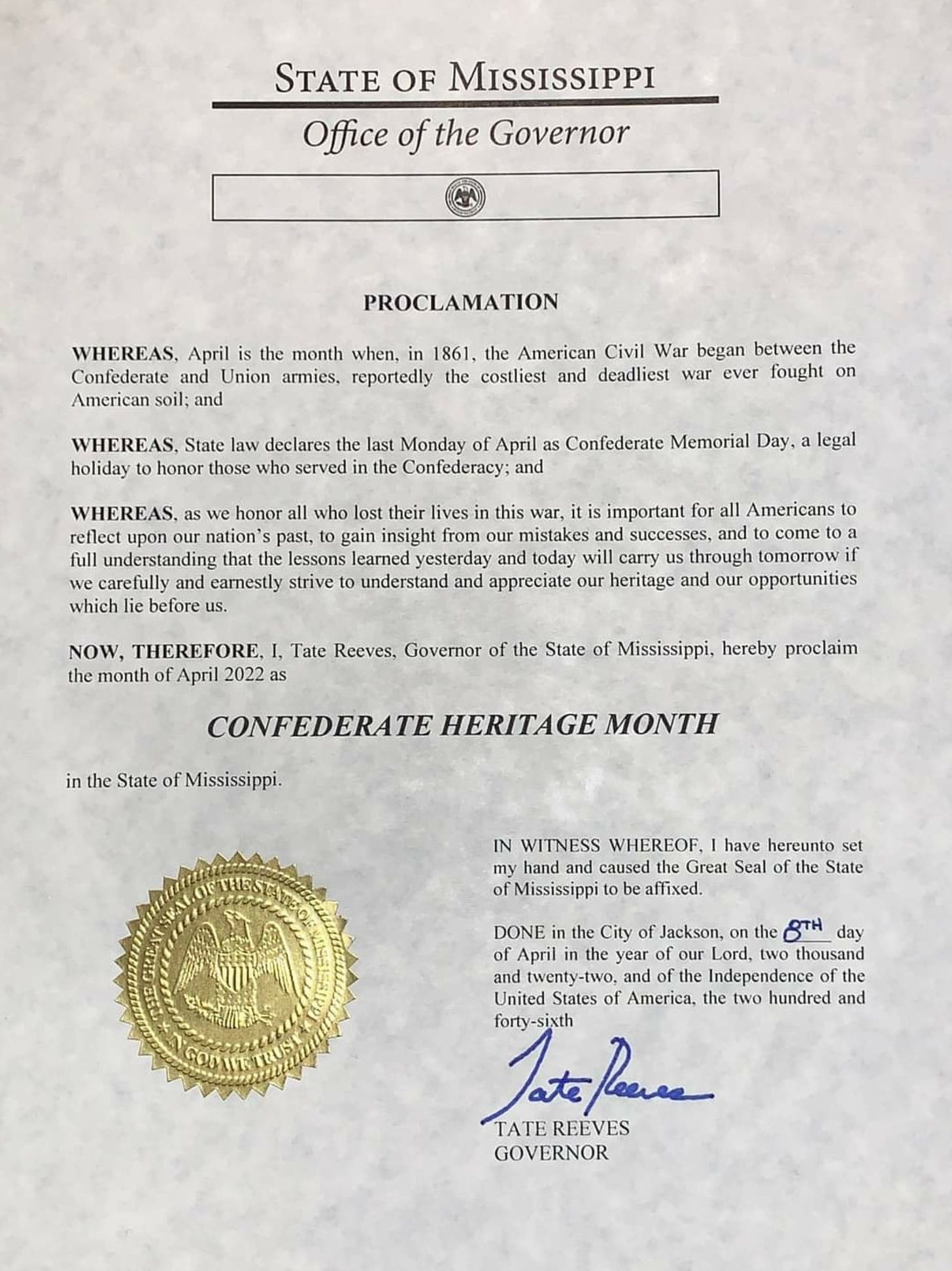Last month, Mississippi’s Republican governor, Tate Reeves, claimed without any evidence that, “critical race theory is running amok” in public schools. He went on to suggest that:
Students are being force-fed an unhealthy dose of progressive fundamentalism that runs counter to the principles of America’s founding. Children are dragged to the front of the classroom and are coerced to declare themselves as oppressors, that that they should feel guilty because of the color of their skin, or that they are inherently a victim because of their race.
Later that day the governor signed legislation banning the teaching of critical race theory even though it is not currently included in any part of Mississippi’s school curricula. According to the bill educators are prevented from teaching, "that any sex, race, ethnicity, religion or national origin is inherently superior or inferior; or that individuals should be adversely treated on the basis of their sex, race, ethnicity, religion or national origin.”
In my twenty-plus years of teaching I have never once talked to a teacher who has suggested anything remotely along these lines in front of students.
This is a solution to a problem that doesn’t exist and, as I have suggested before, it has nothing to do with the critical race theory or history education.
But perhaps Mississippi’s students should learn critical race theory if we understand it as the study of the ways in which racism is embedded in America's culture, society, and legal codes. How else can we understand Governor Reeves’s decision to sign a proclamation recognizing April as Confederate Heritage Month for all Mississippians?
This is the third time that Governor Reeves has signed this particular proclamation and the fifth governor (Republican and Democrat) to do so going back thirty years to the first one in 1993. The governor appears to understand that his signing of this proclamation is problematic since he has not done anything to publicize it, compared to other proclamations he signed this month.
The proclamation itself is an exercise in trying to avoid any recognition of history at all.
It asks Mississippians to “reflect upon our nation’s past and to embrace those “lessons” that “will carry us through tomorrow.” It makes no mention of any substantive history. In short, the signing of this proclamation is an act of cowardice and an exercise in hypocrisy.
Since the governor recognizes April as the beginning of the Civil War, let’s look at what propelled Mississippi to join the Confederacy in February 1861.
When the state seceded on January 9, 1861 it issued a statement explaining why it was necessary:
Our position is thoroughly identified with the institution of slavery-- the greatest material interest of the world. Its labor supplies the product which constitutes by far the largest and most important portions of commerce of the earth. These products are peculiar to the climate verging on the tropical regions, and by an imperious law of nature, none but the black race can bear exposure to the tropical sun. These products have become necessities of the world, and a blow at slavery is a blow at commerce and civilization. That blow has been long aimed at the institution, and was at the point of reaching its consummation. There was no choice left us but submission to the mandates of abolition, or a dissolution of the Union, whose principles had been subverted to work out our ruin.
A few weeks prior to the state’s secession, Judge Alexander Hamilton Handy traveled from Mississippi to Maryland to argue as to why it should join the states in the Deep South in forming a new slaveholding republic. Handy is one of the many “commissioners” discussed in Charles Dew’s wonderful little book, Apostles of Disunion.
The first act of the black republican party will be to exclude slavery from all the Territories, the District [of Columbia], the arsenals and the forts, by the action of the general government. That would be a recognition that slavery is a sin, and confine the institution to its present limits. The moment that slavery is pronounced a moral evil—a sin—by the general government, that moment the safety of the rights of the South will be entirely gone. (p. 33)
Mississippi seceded from the United States and joined the Confederacy precisely because its leaders and much of its white population believed that the white race was “inherently superior” to the Black race and that their ‘treatment’ of African Americans as chattel slaves was entirely justified based on considerations of race.
There is absolutely nothing controversial about these claims. They are well documented in the historical record, even if the Governor Reeves chooses to ignore it in this proclamation.
Today is the anniversary of the Confederate bombardment of Fort Sumter in Charlestson Harbor, which effectively started the Civil War. Confederates would spend the next four years fighting to bring about the independence of a slaveholding republic built on white supremacy—a nation committed to the very things that the governor claims to be against.
The distortion of the history of the Confederacy and the Civil War in states like Mississippi is the result of decades of white political control and legalized racial segregation. We can see it in the way in which this history has long been taught, the design of the state flag up until 2020, and, of course, in the many Confederate monuments located in public spaces throughout the state.
A proclamation in 2022 recognizing April as Confederate Heritage Month points to the extent to which this racism is still embedded in our culture and even our legal codes.





Technically isn't the governor in violation of the law now - since Confederate History has lessons about white supremacy and slavery?
' critical confederate theory ' is ok